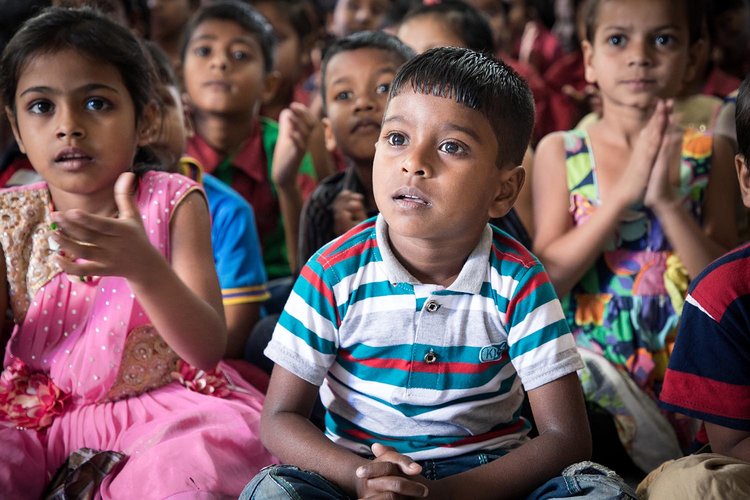Building, Leveraging, and Leading Networks for Lasting Change in Bangladesh


Building and leveraging networks around a common purpose is a key aspect of education diplomacy. Mahmuda Akhter, Executive Director of the Institute of Child and Human Development (ICHD) in Bangladesh, has experienced this firsthand. Along with her organization and other partners, she worked to establish BEN–the Bangladesh ECD Network. “The network,” she explains, “was the outcome of our continuous advocacy and diplomacy with the governmental and nongovernmental sectors in Bangladesh.” Since its establishment, BEN has played a crucial role in Bangladesh’s early childhood development (ECD) sector.
“There is a need to develop a multi-sector collaboration and integrated approach framework for action to achieve the Education 2030 goals.”
— Mahmuda Akhter, Executive Director, ICHD
Formally launched in 2005 at a national ECD conference, BEN provides a forum for ECD stakeholders, including government, nongovernmental, and international organizations. “There is a need to develop a multi-sector collaboration and integrated approach framework for action to achieve the Education 2030 goals,” Ms. Akhter says. Leveraging multi-sectoral networks is key to transformational change in education and ensuring quality education for all learners.
By gathering many voices, BEN has played “a significant role in formulating the Operational Framework for Pre-primary Education” to mainstream pre-primary education in Bangladesh, develop a Comprehensive ECCD Policy and Strategic Operational and Implementation Plan, build Early Learning Development Standards (ELDS) for children birth to eight years old in Bangladesh, and validate the [standards] for all age groups. As a result of building long-term trust with the Bangladesh government, “BEN has become an essential partner of the government in planning and implementing ECCD initiatives in Bangladesh,” according to Ms. Akhter.
ICHD, an active member of BEN, has taken a leadership role in providing ECD capacity building for government officials. “This is also a result of ICHD’s diplomacy and trusting relationship with policymakers,” Ms. Akhter points out. The purpose of the capacity building program is to help government officials and other ECD stakeholders establish the groundwork for implementing the Comprehensive Early Childhood Care and Development Policy, which Bangladesh adopted in 2013.
About 2,500 participants who are key decision-makers at the ministerial, divisional, municipal, and district levels will take a three-day program focusing on how children learn and parenting education. The courses are facilitated by subject experts from government and civil society. “In the very first year,” Ms. Akhter describes, “the program has been able to create significant awareness at the policy making level.” Thus far, the courses have already encouraged the government to expand the project to include frontline ECD workers.
Ms. Akhter shares some important advice about networking and leadership for education diplomats working on similar challenges. She emphasizes raising collective voices rather than individual ones, noting that, together, groups have a stronger platform. She recommends that education diplomats in civil society initiate and build trusting relationships with the government, identify key decision makers, and build a rapport with them. For effective leadership, Ms. Akhter believes that it is vital to select “well-accepted personnel as leaders” for the Education Diplomacy initiative, and those leaders should be transparent and lead in an egalitarian manner. Leaders should also choose the most appropriate mechanisms and tactics for engaging different stakeholders, including the government, and ensuring ownership by all stakeholders through participation in every initiative. In her words,
A two-way approach, strengthening processes of participation and introducing changes in institutional design to create enabling structures for good governance, should be adopted. Taking a proactive role is crucial. Being willing to compromise is vital in cases of negotiation. Finally, the “never give up” strategy is the most important strategy. It is always important to stick with the agenda and continue giving effort with patience and determination without losing hope.
Ms. Akhter’s experience highlights the long-term aspect of Education Diplomacy that moves beyond one-time successes and emphasizes ongoing relationships, building multi-sectoral networks, and leading efforts to create policy change. She emphasizes patience and persistence, which is a common theme among education diplomacy practitioners. Transformational change cannot happen singlehandedly or overnight.